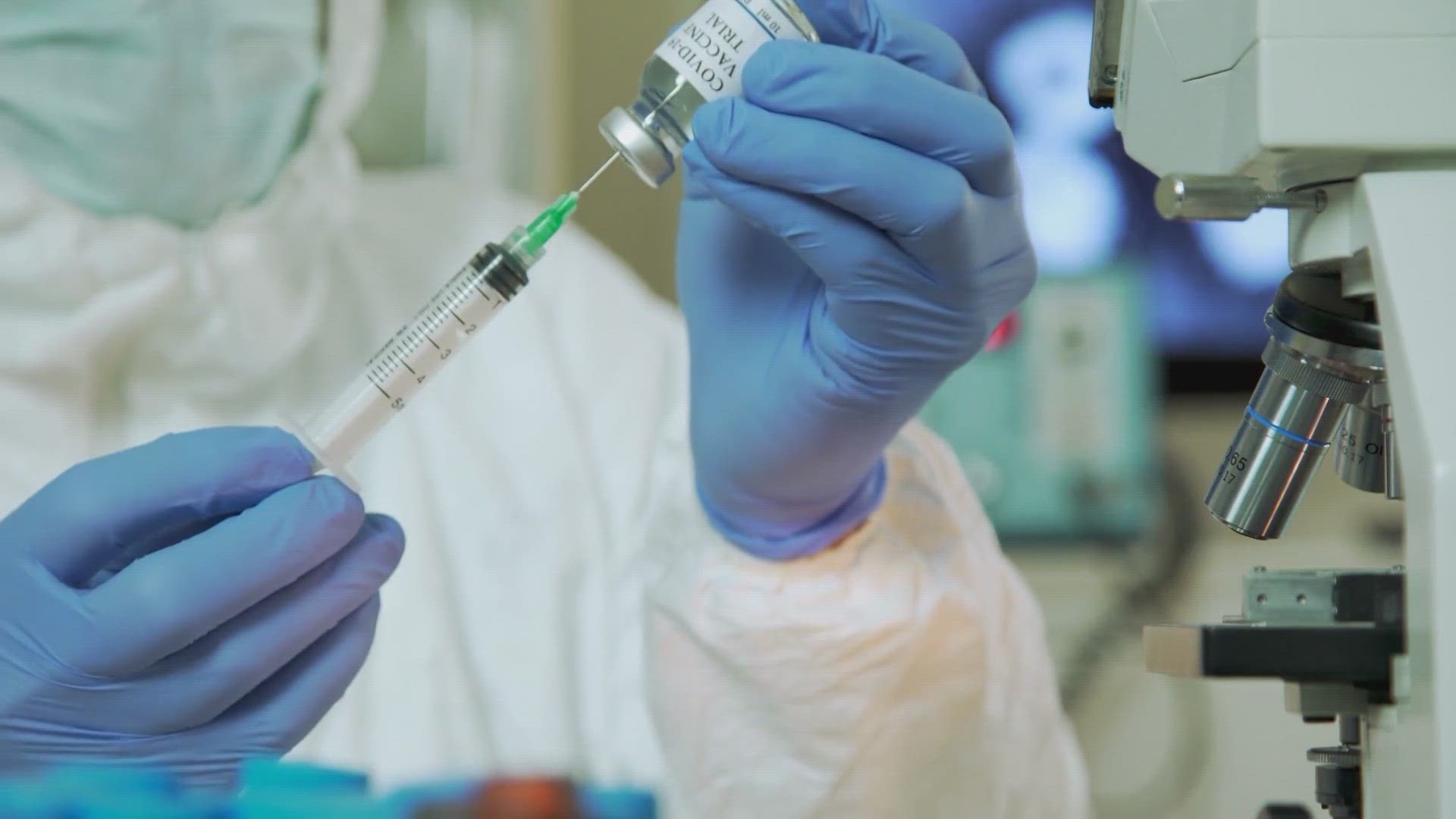SAN ANTONIO — Vaccine hesitancy has been one roadblock health officials have been trying to address as COVID boosters continue to be developed. In this Verify we address one of those concerns that has been floating around the internet.
The next COVID booster is rolling out, but many people still have questions about whether or not it is safe. That leads us to tonight's claim sent in by KENS5 viewer Maria Reyna.
THE QUESTION
Is it true that the new COVID-19 booster may cause blood clots?
THE SOURCES
- Duane Hospenthal, the Medical Director of Infection Control for the Baptist Health System
- World Health Organization
THE ANSWER
FALSE
WHAT WE FOUND
Dr. Hospenthal told us, "It does not appear that any of the current vaccines cause blood clots at any increase rate." He says the rumors about blood clots likely came from warning sent out by the World Health Organization about blood clots related to other COVID vaccines not licensed in other countries, and added, "That's the AstraZeneca, the Sputnik, and the JNJ/Janssen vaccine. It's EUA was not continued. So that was no longer one of the vaccines we use."
On it's website the World Health Organization says, "Before receiving validation from WHO and national regulatory agencies, COVID-19 vaccines must undergo rigorous testing in clinical trials to prove that they meet internationally agreed benchmarks for safety and efficacy."
So no, it is false. The new COVID-19 booster does not cause blood clots at an increased rate.
Dr. Hospenthal also told us if you did get the bivalent booster over the last year, you'll still need this latest booster to be protected from the XBB.1.5 variant, which is the dominant strain right now.
> MORE ON KENS

